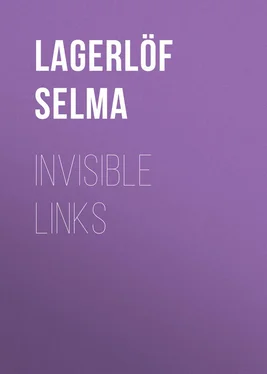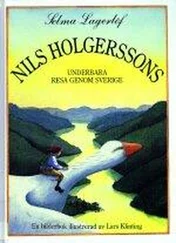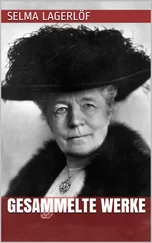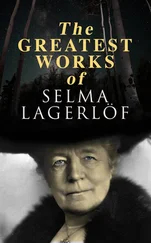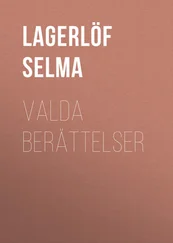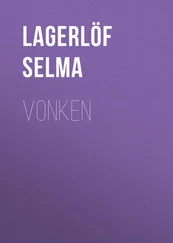Selma Lagerlöf - Invisible Links
Здесь есть возможность читать онлайн «Selma Lagerlöf - Invisible Links» — ознакомительный отрывок электронной книги совершенно бесплатно, а после прочтения отрывка купить полную версию. В некоторых случаях можно слушать аудио, скачать через торрент в формате fb2 и присутствует краткое содержание. Жанр: foreign_antique, foreign_prose, на английском языке. Описание произведения, (предисловие) а так же отзывы посетителей доступны на портале библиотеки ЛибКат.
- Название:Invisible Links
- Автор:
- Жанр:
- Год:неизвестен
- ISBN:нет данных
- Рейтинг книги:4 / 5. Голосов: 1
-
Избранное:Добавить в избранное
- Отзывы:
-
Ваша оценка:
- 80
- 1
- 2
- 3
- 4
- 5
Invisible Links: краткое содержание, описание и аннотация
Предлагаем к чтению аннотацию, описание, краткое содержание или предисловие (зависит от того, что написал сам автор книги «Invisible Links»). Если вы не нашли необходимую информацию о книге — напишите в комментариях, мы постараемся отыскать её.
Invisible Links — читать онлайн ознакомительный отрывок
Ниже представлен текст книги, разбитый по страницам. Система сохранения места последней прочитанной страницы, позволяет с удобством читать онлайн бесплатно книгу «Invisible Links», без необходимости каждый раз заново искать на чём Вы остановились. Поставьте закладку, и сможете в любой момент перейти на страницу, на которой закончили чтение.
Интервал:
Закладка:
The old poems are so beautiful. The captured hero sometimes must walk in chains in the triumphal procession of his victorious enemy. But he is proud and beautiful still in adversity. And looks follow him as well as the fortunate one who has conquered him. Beauty's tears and wreaths belong to him still, even in misfortune.
But who could be enraptured of poor Petter Nord? His coat was torn and his tow-colored hair sticky with blood. He received the most blows, for he offered the most resistance. He looked terrible, as he walked. He roared without knowing it. Boys caught hold of him, and he dragged them long distances. Once he stopped and flung off the crowd in the street. Just as he was about to escape, a blow from a cudgel fell on his head and knocked him down. He rose up again, half stunned, and staggered on, blows raining upon him, and the boys hanging like leeches to his arms and legs.
They met the old Mayor, who was on his way home from his game of whist in the garden of the inn. "Yes," he said to the advance guard, – "yes, take them to the prison."
He placed himself at the head of the procession, shouted and ordered. In a second everything was in line. Prisoners and guards marched in peace and order. The villagers' cheeks flushed; some of them threw down their cudgels; others put them on their shoulders like muskets. And so the prisoners were transferred into the keeping of the police, and were taken to the prison in the market-place.
Those who had saved the town stood a long time in the market-place and told of their courage and of their great exploit. And in the little room of the inn, where the smoke is as thick as a cloud, and the great men of the town mix their midnight toddy, more is heard of the deed, magnified. They grow bigger in their rocking-chairs; they swell in their sofa corners; they are all heroes. What force is slumbering in that little town of mighty memories! Thou formidable inheritance, thou old Viking blood!
The old Mayor did not like the whole affair. He could not quite reconcile himself to the stirring of the old Viking blood. He could not sleep for thinking of it, and went out again into the street and strolled slowly towards the square.
It was a mild spring night. The church clock's only hand pointed to eleven. The balls had ceased to roll on the bowling alley. The curtains were drawn down. The houses seemed to sleep with closed eyelids. The steep hill behind was black, as if in mourning. But in the midst of all the sleep there was one thing awake – the fragrance of the flowers did not sleep. It stole over the linden hedges; poured out from the gardens; rushed up and down the street; climbed up to every window standing open, to every skylight that sucked in fresh air.
Every one whom the fragrance reached instantly saw before him his little town, although the darkness had gently settled down over it. He saw it as a village of flowers, where it was not house by house, but garden by garden. He saw the cherry trees that raised their white arches over the steep wood-path, the lilac clusters, the swelling buds of glorious roses, the proud peonies, and the drifts of flower-petals on the ground beneath the hawthorns.
The old Mayor was deep in thought. He was so wise and so old. Seventy years had he reached, and for fifty he had managed the affairs of the town. But that night be asked himself if he had done right. "I had the town in my hand," he thought, "but I have not made it anything great." And he thought of its great past, and was the more uncertain if he had done right.
He stood in the market-place, looking out over the river. A boat came with oars. A few villagers were coming home from a picnic. Girls in light dresses held the oars. They steered in under the arch of the bridge, but there the current was strong and they were drawn back. There was a violent struggle. Their slender bodies were bent backwards, until they lay even with the edge of the boat. Their soft arm-muscles tightened. The oars bent like bows. The noise of laughter and cries filled the air. Again and again the current conquered. The boat was driven back. And when at last the girls had to land at the market quay, and leave the boat for men to take home, how red and vexed they were, and how they laughed! How their laughter echoed down the street! How their broad, shady hats, their light, fluttering summer dresses enlivened the quiet night.
The old Mayor saw in his mind's eye, for in the darkness he could not see them distinctly, their sweet, young faces, their beautiful clear eyes and red lips. Then he straightened himself proudly up. The little town was not without all glory. Other communities could boast of other things, but he knew no place richer in flowers and in the enchanting fairness of its women.
Then the old man thought with new-born courage of his efforts. He need not fear for the future of the town. Such a town did not need to protect itself with strict laws.
He felt compassion on the unfortunate prisoners. He went and waked the justice of the peace, and talked with him. And the two were of one mind. They went together to the prison and set Petter Nord and his companions free.
And they did right. For the little town is like the Milo Aphrodite.
It has alluring beauty, and it lacks arms to hold fast.
I shall almost be compelled to leave reality, and turn to the world of saga and extravagance to be able to relate what now happened. If young Petter Nord had been Per, the Swineherd, with a gold crown under his hat, it would all have seemed simple and natural. But no one, of course, will believe me if I say that Petter Nord also wore a royal crown on his tow hair. No one can ever know how many wonderful things happen in that little town. No one can guess how many enchanted princesses are waiting there for the shepherd boy of adventure.
At first it looked as if there were to be no more adventures. For when Petter Nord had been set free by the old Mayor, and for the second time had to flee in shame and disgrace from the town, the same thoughts came over him as when he fled the first time. The polska tunes rang again suddenly in his ears, and loudest among them all sounded the old ring-dance.
Christmas time has come,
Christmas time has come,
And after Christmas time comes Easter.
That is not true at all,
That is not true at all,
For Lent comes after Christmas feasting.
And he saw distinctly the pallid Spirit of Fasting stealing about over the earth with her bundle of twigs on her arm. And she called to him: "Spendthrift, spendthrift! You have wished to celebrate the festival of revenge and reparation during the time of fasting, that is called life. Can you afford such extravagances, foolish one?"
Thereupon he had again sworn obedience and become the quiet and thrifty workman. He again stood peaceful and sensible at his work. No one could believe that it was he who had roared with rage and flung about the people in the street, as an elk at bay shakes off the dogs.
A few weeks later Halfvorson came to him at the machine-shop. He looked him up, at his niece's desire. She wished, if possible, to speak to him that same day.
Petter Nord began to shake and tremble when he saw Halfvorson. It was as if he had seen a slippery snake. He did not know which he wished most – to strike him or to run away from him; but he soon perceived that Halfvorson looked much troubled.
The tradesman looked as one does after having been out in a strong wind. The muscles of his face were drawn; his mouth was compressed; his eyes red and full of tears. He struggled visibly with some sorrow. The only thing in him that was the same was his voice. It was as inhumanly expressionless as ever.
"You need not be afraid of the old story nor of the new one either," said Halfvorson. "It is known that you were with those men who made all the trouble with us the other day. And as we supposed that they came from here, I could learn where you were. Edith is going to die soon," he continued, and his whole face twitched as if it would fall to pieces. "She wishes to speak to you before she dies. But we wish you no harm."
Читать дальшеИнтервал:
Закладка:
Похожие книги на «Invisible Links»
Представляем Вашему вниманию похожие книги на «Invisible Links» списком для выбора. Мы отобрали схожую по названию и смыслу литературу в надежде предоставить читателям больше вариантов отыскать новые, интересные, ещё непрочитанные произведения.
Обсуждение, отзывы о книге «Invisible Links» и просто собственные мнения читателей. Оставьте ваши комментарии, напишите, что Вы думаете о произведении, его смысле или главных героях. Укажите что конкретно понравилось, а что нет, и почему Вы так считаете.
